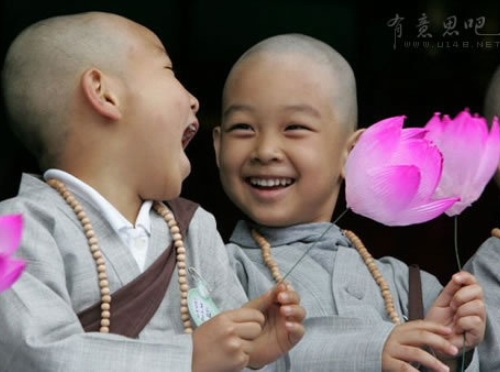Today is what matters most
Every morning we are born again. What we do today is what matters most. ~ Gautama Buddha

Every morning we are born again. What we do today is what matters most. ~ Gautama Buddha

No matter who tells you to be unkind,
do not fall for their words… ~Jendhamuni

If we do not turn inwards and train our mind, but instead expend all our energy on arranging and rearranging the external aspects of our existence, then our suffering will continue. ~ Lama Zopa Rinpoch


Verse 26: The foolish and the ignorant give themselves over to negligence; whereas the wise treasure mindfulness as a precious jewel.
Verse 27: Therefore, one should not be negligent, nor be addicted to sensual pleasures; for he who is established in mindfulness, through cultivation of Tranquillity and Insight Development Practice, experiences supreme happiness (i.e., realizes Nibbana).
1. bala dummedhino jana: the foolish and the ignorant. The foolish mentioned in the story were the hooligans who were given up to wild revelry and disorder during the Balanakkhatta festival. They were not mindful of others or of the consequence for themselves in this world and the next.
The Story of Balanakkhatta Festival
White residing at the Jetavana monastery, the Buddha uttered Verses (26) and (27) of this book, in connection with the Balanakkhatta festival.
At one time, the Balanakkhatta festival was being celebrated in Savatthi. During the festival, many foolish young men smearing themselves with ashes and cow-dung roamed about the city shouting and making themselves a nuisance to the public. They would also stop at the doors of others and leave only when given some money.
At that time there were a great many lay disciples of the Buddha, living in Savatthi. On account of these foolish young hooligans, they sent word to the Buddha, requesting him to keep to the monastery and not to enter the city for seven days. They sent alms-food to the monastery and they themselves kept to their own houses. On the eighth day, when the festival was over, the Buddha and his disciples were invited into the city for alms-food and other offerings. On being told about the vulgar and shameful behaviour of the foolish young men during the festival, the Buddha commented that it was in the nature of the foolish and the ignorant to behave shamelessly.
Then the Buddha spoke in verse as follows:
Verse 26: The foolish and the ignorant give themselves over to negligence; whereas the wise treasure mindfulness as a precious jewel.
Verse 27: Therefore, one should not be negligent, nor be addicted to sensual pleasures; for he who is established in mindfulness, through cultivation of Tranquillity and Insight Development Practice, experiences supreme happiness (i.e., realizes Nibbana).
Dhammapada Verses 26 and 27
Balanakkhattasanghuttha Vatthu
Pamadamanuyu janti
bala dummedhino jana1
appamadaca medhavi
dhanam setthamva rakkhati.
Ma pamadamanuyu jetha
ma kamaratisanthavam
appamatto hi jhayanto
pappoti vipulam sukham.
Source: Tipitaka

For Attractive lips, speak words of kindness.
For lovely eyes, seek out the good in people.
For a slim figure, share your food with the hungry.
For beautiful hair, let a child run their fingers through it once a day.
For poise, walk with the knowledge that you never walk alone.
We leave you a tradition with a future.
The tender loving care of human beings will never become obsolete.
People even more than things have to be restored, renewed, revived, reclaimed and redeemed and redeemed and redeemed.
Never throw out anybody.
Remember, if you ever need a helping hand, you’ll find one at the end of your arm.
As you grow older, you will discover that you have two hands: one for helping yourself, the other for helping others.
Your “good old days” are still ahead of you, may you have many of them.~ Sam Levenson
If we are peaceful, if we are happy, we can smile and blossom like a flower, and everyone in our family, our entire society, will benefit from our peace. ~ Thich Nhat Hanh

What is lovely never dies, But passes into other loveliness, Star-dust, or sea-foam, flower or winged air. ~Thomas Bailey Aldrich

Smiling is infectious,
You can catch it like the flu.
Someone smiled at me today,
And I started smiling too.
~Author Unknown

In order to change we must be sick and tired of being sick and tired. ~Author Unknown


Photo credit: Randy Neufeldt
In the beginning we learn what still water is like and what flowing water is like. After practicing for a while we will see how these two support each other. We have to make the mind calm, like still water. Then it flows. Both being still and flowing: this is not easy to contemplate.
We can understand that still water doesn’t flow. We can understand that flowing water isn’t still. But when we practice we take hold of both of these. The mind of a true practitioner is like still water that flows, or flowing water that’s still. Whatever takes place in the mind of a Dhamma practitioner is like flowing water that is still. To say that it is only flowing is not correct. Only still is not correct. But ordinarily, still water is still and flowing water flows. But when we have experience of practice, our minds will be in this condition of flowing water that is still.
This is something we’ve never seen. When we see flowing water it is just flowing along. When we see still water, it doesn’t flow. But within our minds, it will really be like this; like flowing water that is still. In our Dhamma practice we have samādhi, or tranquility, and wisdom mixed together. We have morality, meditation and wisdom. Then wherever we sit the mind is still and it flows. Still, flowing water. With meditative stability and wisdom, tranquility and insight, it’s like this. The Dhamma is like this. If you have reached the Dhamma, then at all times you will have this experience. Being tranquil and having wisdom: flowing, yet still. Still, yet flowing. ~Ajahn Chah